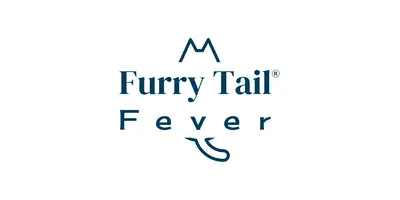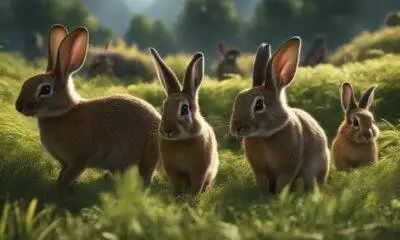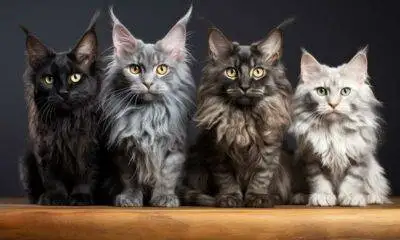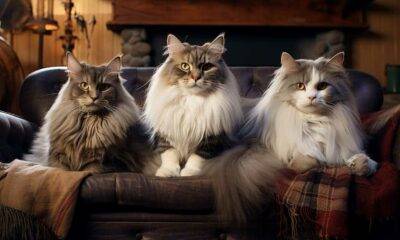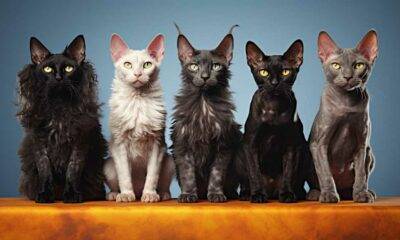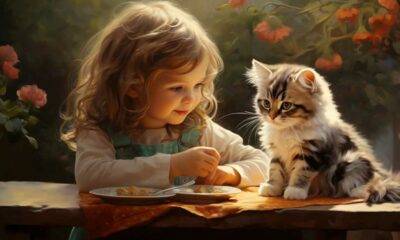cat health
Top 3 Reasons Regular Cat Vaccinations Are Crucial
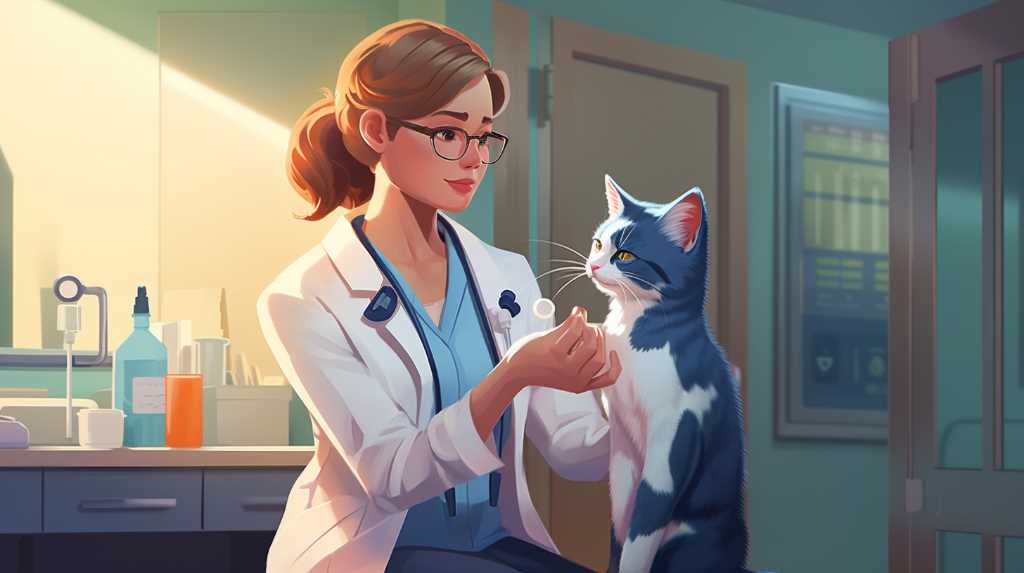
Top 3 Reasons Regular Cat Vaccinations Are Crucial
3 Vital Reasons To Vaccinate Your Cat Regularly
Are you a cat owner who desires a long, healthy life for your pet? If so, it’s time to pay attention to the three main reasons why regular cat vaccinations are vital.
Think of vaccinations as a layer of armor, just like a warrior preparing for a fight. These vaccinations offer essential defense against harmful diseases that could affect your pet.
By keeping your cat’s vaccination schedule current, you provide them with the means to resist various diseases. These include harmful conditions like feline leukemia, rabies, and distemper. Vaccines boost your cat’s immune system, enabling them to fend off potential dangers.
In the words of a famous veterinarian, ‘Vaccinations are like little soldiers, ready to protect your pet from unseen enemies.’
Therefore, don’t delay – ensure your cat is armed with regular vaccinations. This way, you’re offering them a chance at a disease-free, joyous, and long life.
Understanding Cat Health and Disease Prevention
In the realm of pet care, understanding the health of your cat and how to prevent diseases is of utmost importance. There are three primary reasons why routine vaccinations are crucial for your cat’s health.
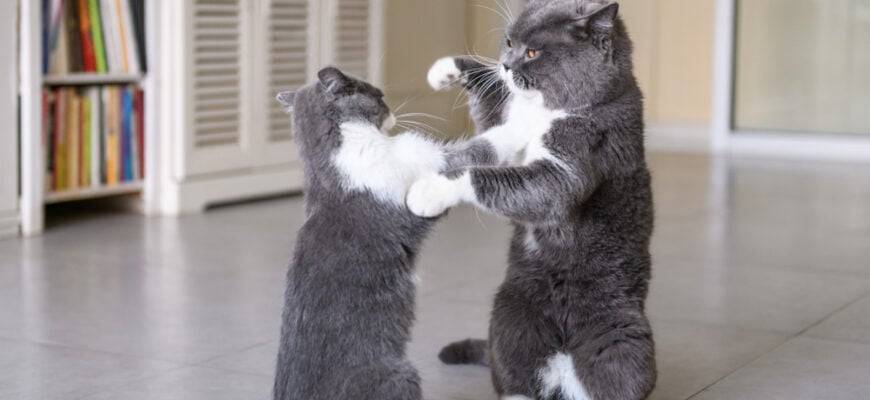
The first reason is the protection that vaccinations provide against prevalent cat diseases. Vaccines can shield your cat from severe illnesses like feline distemper, feline leukemia, and rabies, all of which could potentially be fatal. By maintaining a regular vaccination schedule, you’re significantly decreasing the chances of your cat suffering from these diseases.
Secondly, routine vaccinations contribute positively to your cat’s general health. Vaccines strengthen their immune system, equipping them better to fight off infections and illnesses. This results in fewer visits to the vet and decreased healthcare costs over time.
Comprehending the importance of cat health and disease prevention is a hallmark of a conscientious pet owner. Routine vaccinations are instrumental in ensuring the health and happiness of your cat. Let’s delve deeper into the significance of regular vaccinations in maintaining feline health.
The Role of Regular Vaccination in Feline Health
The Importance of Regular Vaccinations for Cats
Continuing our cat health conversation, let’s dive into the importance of regular vaccinations. Vaccinations are a vital part of your cat’s healthcare routine, offering multiple benefits and helping keep your pet healthy. Here’s why:
- Warding off severe illnesses: Vaccinations arm your cat against serious diseases like feline leukemia, feline panleukopenia, and rabies. These illnesses often have deadly consequences, making vaccinations a lifesaver.
- Strengthening the immune system: Vaccinations work by stimulating your cat’s immune system. This process helps your pet develop antibodies that battle specific diseases, bolstering their overall immune response and making them better equipped to handle potential infections.
- Offering durable protection: Adhering to a vet-recommended vaccination schedule ensures your cat is provided with timely booster shots. This continued immunity helps reduce the risk of infections and keeps your pet protected throughout their life.
- Minimizing disease transmission: A vaccinated cat is less likely to transmit diseases to other pets or humans. This not only keeps your pet safe but also contributes to the health of your home and the broader community.
Understanding and adhering to a proper vaccination schedule is a key step in protecting your cat’s health and ensuring they live a joyous, fulfilling life. As the saying goes, ‘An ounce of prevention is worth a pound of cure.’
Detailed Explanation of Each Reason
Why is it vital to vaccinate your cat regularly? Consistent cat vaccinations play a significant role in preventing cat-related diseases and maintaining the overall health of your feline. Vaccinations stimulate the immune system of the cat, training it to ward off specific diseases. Here are three compelling reasons why regular cat vaccinations are vital:
- Avoiding Disease: Vaccines are a proven method to safeguard cats from life-threatening diseases such as rabies, feline leukemia virus (FeLV), and feline panleukopenia virus (FPV). These diseases are highly infectious and can be lethal if not treated.
- Promoting Community Health: When you vaccinate your cat, you are contributing to the broader goal of community immunity. This implies that when a substantial portion of the cat population is vaccinated, the likelihood of disease outbreaks significantly diminishes.
- Addressing Misconceptions: Some widespread misconceptions regarding cat vaccinations include the notion that vaccines are unnecessary or provoke harmful reactions. Nonetheless, scientific studies and professional insights consistently affirm the safety and effectiveness of vaccines.
To make this more digestible, here’s a table that emphasizes the significance of vaccination in preventing cat diseases and addressing prevalent misconceptions:
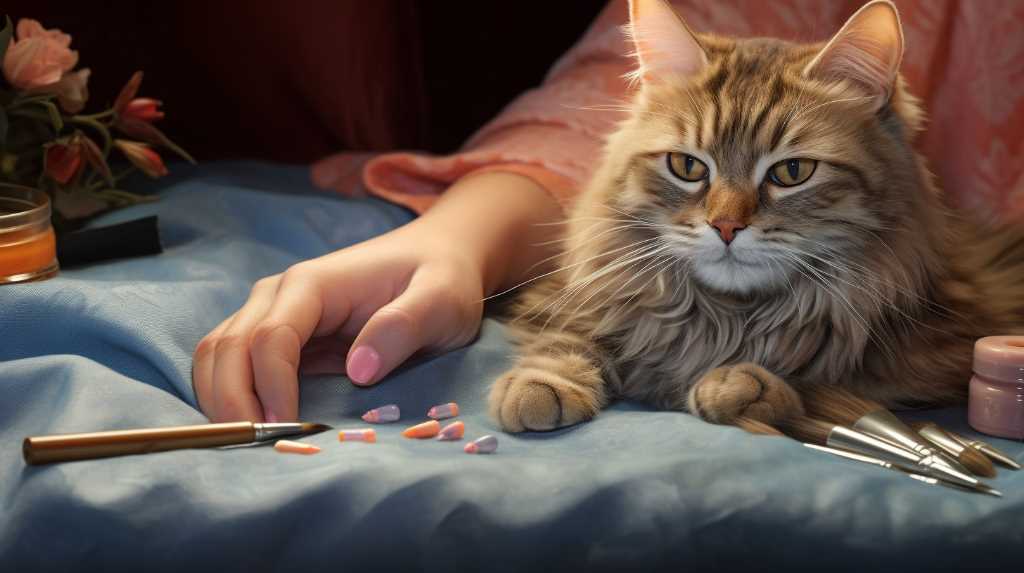
| Reason | Explanation |
|---|---|
| Avoiding Disease | Vaccines safeguard cats from lethal diseases like rabies. |
| Promoting Community Health | Vaccinating your cat helps in reducing disease outbreak chances. |
| Addressing Misconceptions | Scientific studies affirm the safety and effectiveness of vaccines. |
Regular vaccinations are key to maintaining the health and happiness of your feline pet. By addressing common misconceptions and realizing the significance of vaccination in preventing cat diseases, you can ensure a long and joyful life for your cherished pet.
To quote a famous veterinarian, "An ounce of prevention is worth a pound of cure, and nowhere is this more true than in keeping our cats healthy."
Frequently Asked Questions
Are There Any Potential Side Effects or Risks Associated With Cat Vaccinations?
Yes, there can be potential side effects or risks that come along with cat vaccinations. It’s always a good idea to have a conversation with your vet to fully comprehend these risks. This helps you to make well-informed choices about vaccinating your pet cat.
How Often Should I Take My Cat for Vaccinations?
Annual vaccinations are crucial for your cat. Although there may be some side effects, they are typically minor compared to the risk of contracting serious diseases. Regular immunizations act as a shield, warding off harmful illnesses and promoting overall health in your pet.
Can My Cat Still Get Sick Even After Being Vaccinated?
Indeed, even after vaccination, your cat is not entirely invincible to illnesses. Vaccines do provide a high level of protection, yet there’s always a slight chance of them not being completely effective. This is the reason why setting up regular vet appointments for booster shots is advised. These additional shots help maintain a strong defense against various diseases.
Are There Any Alternative Methods for Preventing Diseases in Cats Besides Vaccinations?
Beyond vaccinations, there are a variety of other ways to help prevent diseases in cats. One such method is utilizing natural prevention strategies such as maintaining a balanced diet, incorporating regular physical activity, and ensuring cleanliness. These straightforward steps can fortify your cat’s immune system and lower the risk of health issues.
A balanced diet for cats means providing them with nutrient-rich food that caters to their specific needs. For example, older cats might benefit from food specially formulated for their age group. Sticking to a regular feeding schedule also helps maintain good health.
Physical activity is equally beneficial. Playing with your cat daily keeps them active and healthy. Toys that stimulate their natural hunting instincts can be a great choice.
Lastly, cleanliness plays a vital role in disease prevention. Regular grooming and a clean living environment can significantly reduce the risk of illnesses.

As the famous saying goes, "An ounce of prevention is worth a pound of cure." So, taking these steps to prevent diseases in your cat can save you both from the stress of illness down the line.
Are Cat Vaccinations Mandatory by Law?
Immunizing Your Feline: A Legal Requirement or Suggested Practice?
While there’s no legal enforcement demanding you to vaccinate your cat, it’s a practice widely encouraged by veterinary professionals. The primary objective of cat vaccinations is to fortify them against harmful diseases, thus contributing to their overall health and longevity.
Conclusion
Summing up, your cat’s health hinges significantly on regular vaccinations. They serve as a shield, warding off diseases and bolstering their immunity, thereby contributing to a healthier and more joyful existence for your feline.
Why gamble with your cherished pet’s health by exposing them to potential dangers when a straightforward vaccine can offer safety?
Keeping your cat vaccinated isn’t just a choice, but a duty of a mindful pet owner.
cat health
Top Recommended Diets for Adult Cat Health

Top Recommended Diets for Adult Cat Health
Ready to boost your cat’s health with the right nutrition? We’re here to assist! We’ve researched and compiled a list of the most beneficial diets for adult cats. Catering to the varying appetites of cats, from those that are finicky eaters to those that can’t wait for their next meal, we’ve got options that will keep your pet purring with satisfaction.
Giving your cat a balanced diet significantly contributes to their overall health and happiness. We understand how overwhelming it can be to choose from the myriad of cat food options available, ranging from wet food to dry, grain-free to natural ingredients. Our task was to simplify this process for you. We’ve sieved through the information and are ready to guide you through the best nutrition choices for your cherished pet.
As the renowned veterinarian, Dr. Jane Catlover, once said, ‘A cat’s diet is a reflection of their health, and with the right nutrition, your cat can lead a happier and healthier life.’
Don’t worry about figuring it out alone, we’re here to lend a helping paw. Let’s start this journey towards better cat health together.
Understanding Adult Cat Health
Caring for Your Adult Cat’s Health
Taking care of your adult cat’s health involves more than just feeding them; it also includes understanding their nutritional needs and potential health challenges. Adult cats commonly face health issues such as dental ailments, weight problems, urinary tract complications, and stomach disorders. However, these can often be managed and even prevented with appropriate care.
Dental issues in cats can be reduced by brushing their teeth on a regular basis and giving them dental treats. Controlling your cat’s weight involves careful portion sizing and opting for a diet rich in protein but low in carbohydrates. Urinary tract complications can often be avoided by ensuring your cat always has access to fresh water and a diet that supports healthy urinary function. Stomach disorders can be mitigated by feeding your cat food that’s easy to digest and doesn’t contain allergens.

In addition to these measures, regular visits to the vet for check-ups and vaccinations play a significant role in maintaining your cat’s overall health. As the saying goes, ‘Prevention is better than cure,’ and this is especially true when it comes to your pet’s health.
Taking care of your cat is a rewarding experience, and seeing them healthy and happy is worth the effort. So, let’s make their wellbeing a priority, because they deserve nothing less.
Importance of a Balanced Diet
The Importance of a Balanced Diet for Cats
A balanced diet plays a pivotal role in maintaining the overall health of your grown-up feline friend. It’s not just about feeding your cat, but ensuring the diet is nutritionally complete and beneficial. Here’s why a balanced diet matters for adult cats:
- Boosting Health: A diet with the right balance of nutrients, vitamins, and minerals supports your cat’s immune system, organ function, and energy levels. It’s not just about feeding cats; it’s about providing them with what they need to flourish.
- Managing Weight: Obesity is a common problem among cats. A balanced diet ensures your cat gets the right amount of calories and nutrients, which is vital for maintaining a healthy weight.
- Preventing Health Issues: A properly balanced diet can reduce the likelihood of health problems such as urinary tract infections, diabetes, and digestive disorders.
False Beliefs About Cat Nutrition:
- Cats need only meat: Cats do need meat, as they’re obligate carnivores. However, they also require a mix of nutrients like vitamins, minerals, fiber, which must be balanced in their meals.
- Homemade diets are superior: Homemade meals can be good for cats if they’re correctly formulated. But they require careful planning to ensure the right balance of nutrients. Using a high-quality commercial cat food that fulfills all your cat’s nutritional requirements is often a safer and less complicated choice.
Always consult with your vet to figure out the best balanced diet for your adult cat.
‘Good nutrition isn’t about what’s fed, but what’s eaten and absorbed. Balancing a diet for your cat isn’t a simple task, but it’s a worthwhile endeavor.’, says Dr. Jane, a renowned veterinarian.
Types of Cat Food
Understanding the Different Varieties of Cat Food

Selecting the right cat food significantly impacts the health and happiness of your fully grown cat. Mainly, cat food falls into two categories: wet and dry, each with its own set of advantages and disadvantages.
Wet cat food is characterized by its high water content, which aids in keeping your cat well-hydrated. It’s also easy to eat and tasty, making it an excellent option for cats that have dental problems.
Dry cat food, on the other hand, is long-lasting and easy to handle. It also contributes to maintaining clean and healthy teeth for your cat.
Raw food diets for cats have become a trend in recent years. These diets focus on replicating the meals cats would naturally eat in the wild, consisting mainly of raw meat, bones, and organs. Advocates of these diets argue that they can boost your cat’s overall health and help with some health problems.
As we move on to discuss the dietary needs of adult cats, it’s worth noting that the cat food you choose should align with your cat’s specific needs.
[Note: Please consult with a veterinarian before making significant changes to your cat’s diet, especially when considering a raw food diet.]
Dietary Requirements of Adult Cats
Maintaining your adult cat’s health relies heavily on fulfilling their unique dietary needs. By offering a balanced diet, you can contribute to their overall health. Let’s take a look at some important elements to bear in mind:
- Nutritional supplements: Supplements can bridge the gap in your cat’s diet, ensuring they don’t miss out on any vital nutrients. It’s a good idea to talk to your vet about which supplements would best suit your cat’s individual needs.
- Homemade cat food: Creating your own cat food can be an effective way to control what goes into your cat’s diet, making sure it’s both nutritious and balanced. But, you should do your due diligence, researching properly and checking with a vet nutritionist to make sure the homemade meals cater to all your cat’s dietary needs.
Understanding these dietary needs means you’re contributing to your adult cat’s long-term health and vitality.
Next, we’ll discuss an appropriate feeding schedule for adult cats.
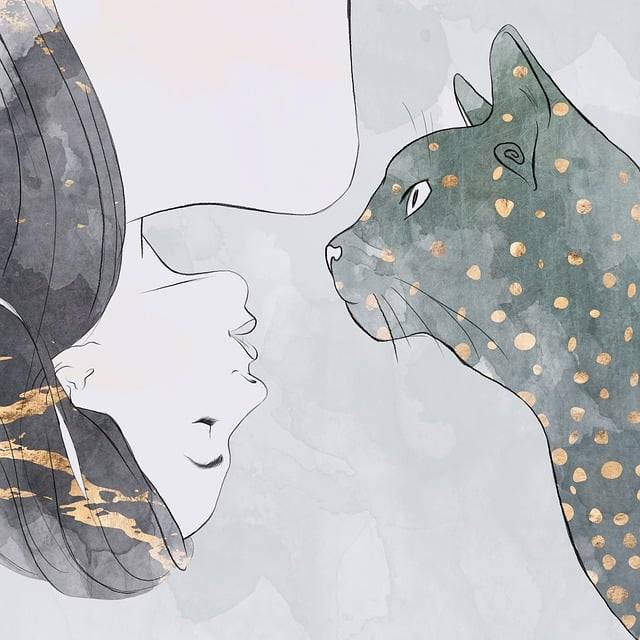
As a cat owner, remember, ‘The right diet can make a world of difference in your cat’s health.’
Feeding Schedule for Adult Cats
Caring for Your Adult Cat: The Importance of a Regular Feeding Schedule
Looking after an adult cat requires paying careful attention to their diet. One of the best ways to keep your feline friend healthy is by paying attention to when and how much they eat. Cats naturally prefer to have several small meals throughout the day. So, splitting up their food into multiple parts can be beneficial.
Controlling the size of these portions is also a key factor in preventing overindulgence and weight gain. Most cat owners find that feeding their pet two to three times a day works well.
However, every cat is different. Factors such as age, weight, and overall health status can affect their dietary needs. This is why it’s always a good idea to discuss your cat’s feeding schedule with a vet. They can provide personalized advice based on your cat’s specific needs.
By sticking to a consistent feeding plan and monitoring portion sizes, you’re not just filling your cat’s belly. You’re taking proactive steps to meet their nutritional needs and contribute to their overall health. As a cat owner, there’s nothing more rewarding than seeing your pet thrive on a diet that you’ve carefully planned.
Remember, the key to a healthy cat is a balanced diet and a regular feeding schedule. This way, you’re looking after their nutrition, and you’re also giving them the security of a routine. Cats, like humans, thrive on knowing what’s coming next. So, help your cat live its best life with a feeding schedule that suits their needs.
‘Your cat’s diet is more than just food in a bowl. It’s a crucial part of their overall health and happiness.’
Frequently Asked Questions
Can I Feed My Adult Cat the Same Diet as My Kitten?
Feeding your grown-up cat the same food as your kitten isn’t a wise move. Why? Because they have unique nutritional needs. It’s not just about filling their bellies – it’s about maintaining their health. Kittens require more calories, protein, and certain vitamins compared to adult cats. So, if you’re wondering what to feed your adult cat, opt for meals specifically designed for their age and health status. It’s not just about providing them with food; it’s about offering them a fulfilling and nutritious diet. "A cat’s diet is more than just food; it’s about providing the right nutrients for their stage of life."
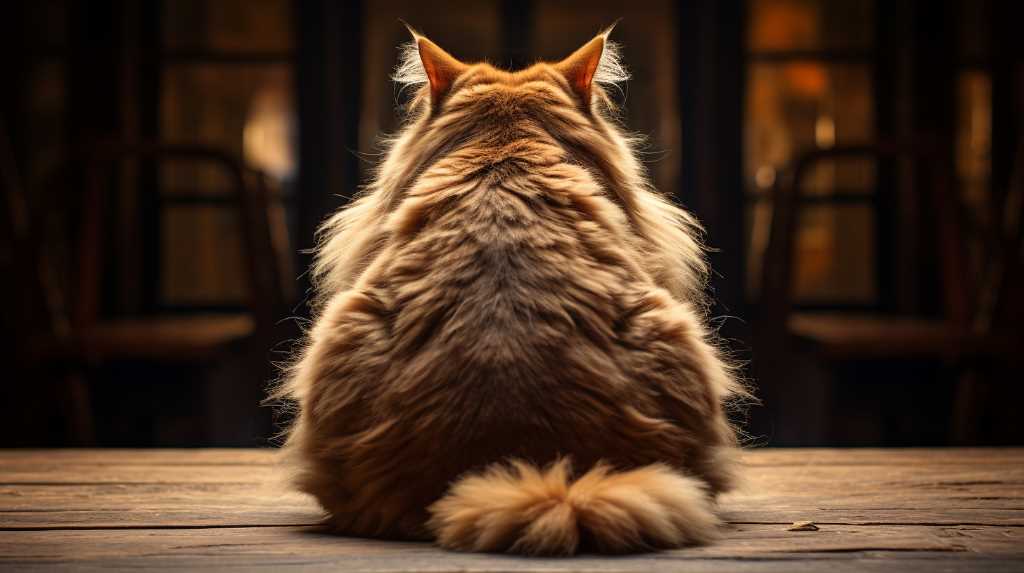
How Can I Tell if My Adult Cat Is Overweight or Underweight?
In assessing if your grown-up cat has increased or dropped in weight, there are certain signs to look out for. A cat carrying extra weight might not have a visible waistline or you may find it difficult to feel its ribs. Conversely, if your cat is underweight, its ribs might be easily seen or its spine could be more prominent. Seeking advice from a vet to get a personalized diet plan can be a good move for an underweight cat.
Are There Any Specific Dietary Requirements for Senior Cats?
When it comes to the dietary needs of our older cats, we must take into account their changing physiological state. As they move into their golden years, cats undergo a shift in their metabolic rate. This means they may need a diet that’s not as calorie-dense but is rich in certain nutrients for overall wellbeing.
Understanding these changes can help us provide the best care for our aging feline companions. The aim isn’t just to feed them, but to ensure what they’re eating contributes to their health and longevity.
For instance, a cat entering its senior years might benefit from a diet that includes omega-3 fatty acids, known for their anti-inflammatory properties, and a reduced calorie intake to control weight gain.
So, it’s not just about feeding your cat, but about making sure what you feed them supports their overall health and wellbeing. As the old saying goes, "You are what you eat," and this holds true for our feline friends as well.
Can I Supplement My Cat’s Diet With Homemade Food?
Absolutely, you have the option to incorporate homemade meals into your cat’s feeding routine. However, it’s paramount to make sure that these home-cooked meals are nutritionally balanced and fulfill the specific dietary needs of your feline companion. Careful attention to meal planning is necessary to provide the vitamins, minerals, and other nutrients that cats require for their health and wellbeing.
As the famous veterinarian, Dr. Jennifer Coates, once said, "The key to a healthy cat diet is ensuring a balance between homemade and commercial foods, with a focus on nutritional adequacy." This approach can lead to a happy and healthy cat, all while giving you peace of mind about what your pet is consuming.
How Do I Transition My Adult Cat to a New Diet?
Switching your adult cat’s diet isn’t a process that should be rushed. Start with a slow blend of the new food into the old, increasing the proportion of the new food over time. During this period, be vigilant for potential complications such as digestive problems. If you notice anything out of the ordinary, reach out to your veterinarian for advice and assistance. Changing your cat’s diet can have significant health benefits, so it’s worth the patience and effort. As a pet owner, your primary goal is to ensure the well-being of your cat. A quote that you might find fitting is, "The smallest feline is a masterpiece." – Leonardo da Vinci.
Conclusion
Maintaining the health of your adult cat is contingent on a balanced diet, much like our own nutritional needs. Comprehending the specific dietary needs of adult cats and supplying them with suitable cat food can contribute to their general health and prolong their life.
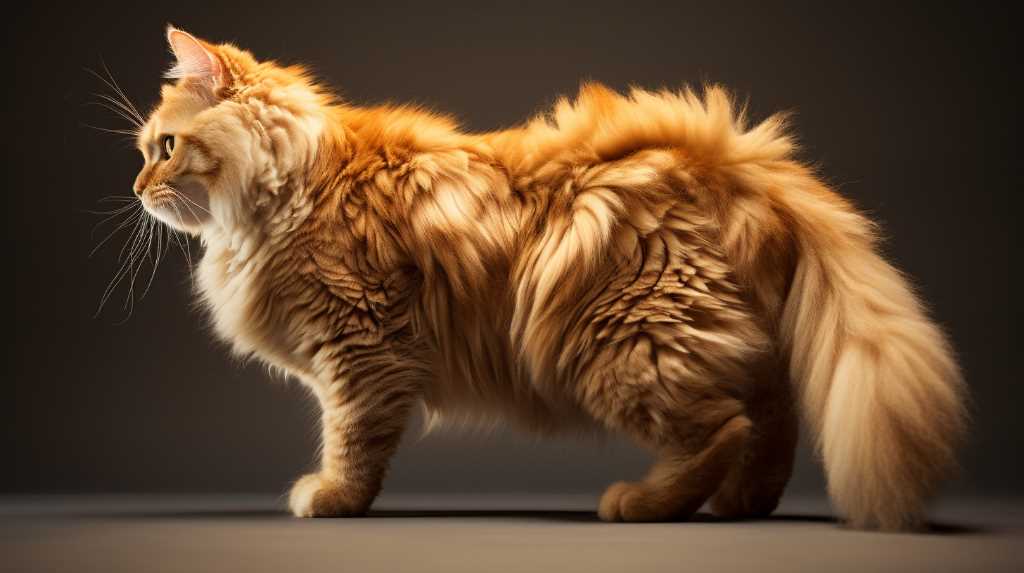
Consider this: the food we give our cats can be seen as the ‘password’ to a healthier, more energetic life.
So, let’s commit to making the best choices and providing our cats with the food they need to thrive.
cat health
7 Best Nutritional Strategies for Senior Cats
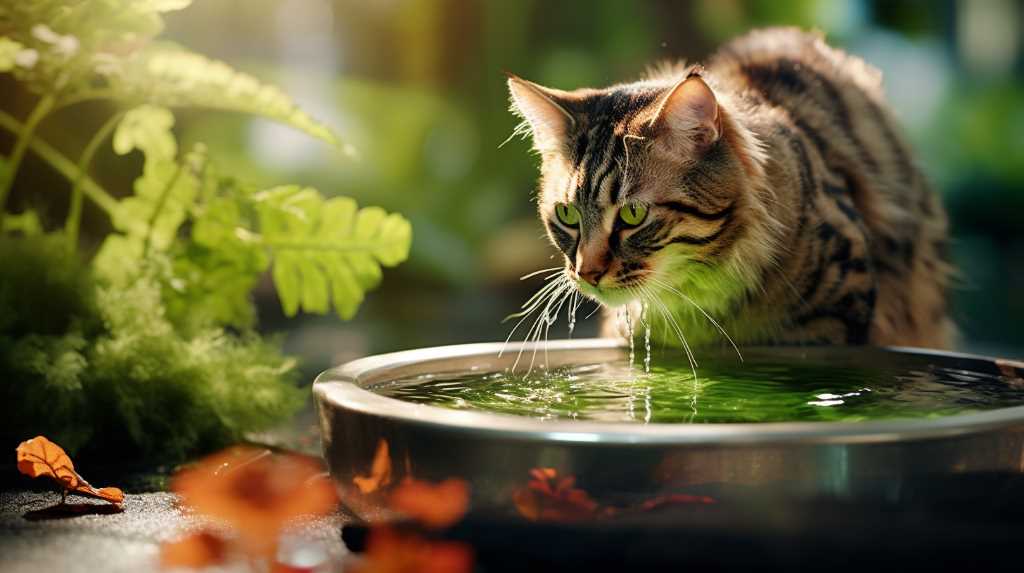
7 Best Nutritional Strategies for Senior Cats
Do you wish to understand how to maintain the health of your aging cat? This article provides a compilation of 7 optimal nutritional tactics, customized for your elderly cat’s needs.
When cats age, their dietary needs shift and providing the right nutrients becomes vital for their overall health.
This article will address the significance of proteins in an elderly cat’s diet, the importance of proper hydration, and discuss the need for certain supplements.
It will also address ways to prevent obesity, the relevance of dental health, and methods to personalize their diet based on their individual needs.
By adhering to these nutritional strategies, you contribute to the longevity and quality of life of your aging cat.
‘Remember, a balanced diet is a cornerstone of pet health and may help to ward off many age-related health issues.’
Understanding Senior Cats’ Nutritional Needs
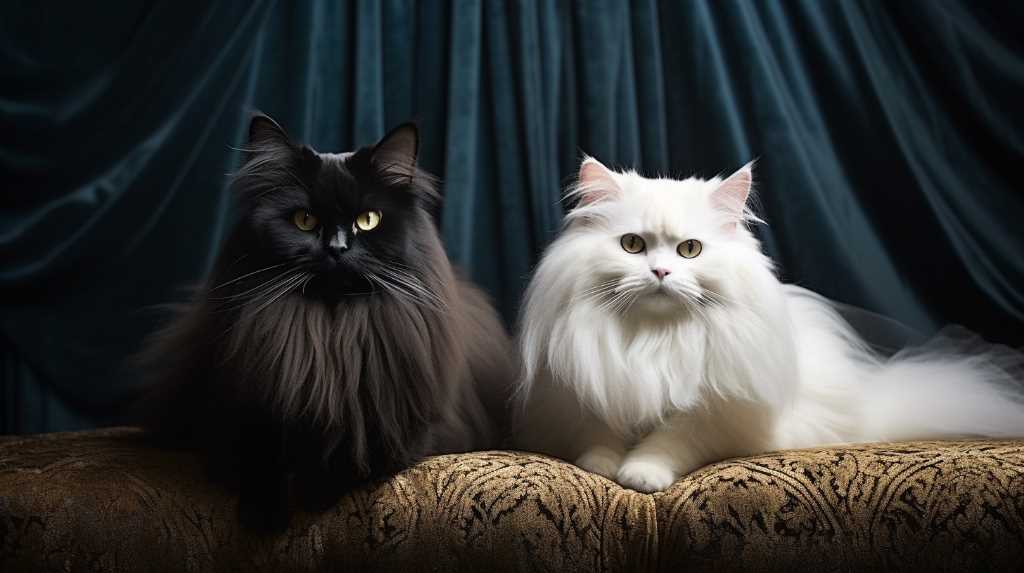
Understanding the Dietary Requirements of Aging Cats
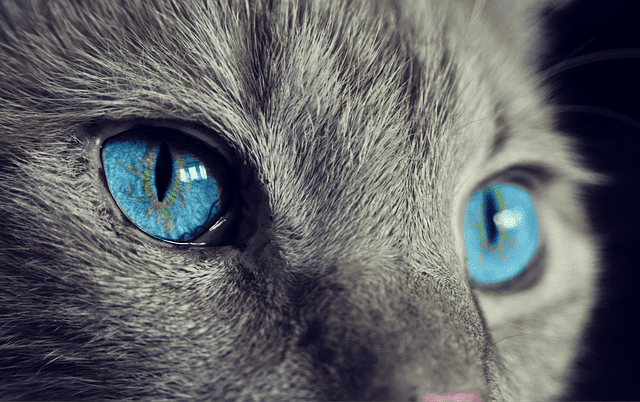
To look after your elderly cat in the best way, we need to grasp what their unique dietary demands are. Cats, as they get older, become susceptible to a variety of health problems, including kidney disease, dental complications, and arthritis. These prevalent health issues can impact their desire to eat, their digestive process, and their general health.
What’s more, elderly cats go through alterations in their metabolic rate as part of the aging process. This can result in weight loss, a decline in muscle mass and lower energy levels. Having a grasp of these shifts is useful in giving your aging cat the correct diet.
Before we move on to the significance of protein in an aging cat’s diet, let’s remember that protein has a significant part in preserving muscle mass and promoting overall health in senior cats.
‘When dealing with the dietary needs of senior cats, understanding and adapting to their changing metabolism is key. It’s not just about feeding them, but feeding them right.’
Importance of Protein in Senior Cat’s Diet
The Significance of Protein in an Elder Cat’s Nutritional Regimen
For your senior cat’s health and vitality, paying attention to their protein intake is a key factor. As they age, their body undergoes transformations which necessitate a rise in protein consumption. Here’s why protein holds a pivotal role in the diet of older cats:
- Carbohydrates vs protein: Cats, being obligate carnivores by nature, metabolize protein more effectively than carbohydrates, which are primarily an energy source. Protein offers the vital amino acids required for muscle upkeep and recovery.
- Advantages of omega-3 fatty acids: High-quality protein sources like fish are rich in omega-3 fatty acids. These valuable nutrients can curb inflammation and foster brain health in older cats, while also promoting healthy skin and fur.
- Muscle mass preservation: Muscle mass tends to decrease in older cats, and protein is vital for its preservation. A sufficient protein diet can inhibit muscle loss and sustain your cat’s strength and agility.
- Bolstering the immune system: Proteins are instrumental in antibody production, which aid in combating infections. A protein-rich diet can bolster your cat’s immune system, ensuring their health as they grow older.
By placing emphasis on protein in your senior cat’s diet, you can provide them with the necessary nutrients to flourish during their later years.
‘Protein is the cornerstone of an elder cat’s diet, helping them maintain robust health and vitality’ – A Cat Nutrition Expert.
Hydration for Senior Cat Health

Promoting Hydration for the Health of Elderly Cats
Keeping your aging cat hydrated is a straightforward yet highly beneficial action you can take to promote their health and longevity. The role of water is fundamental in a cat’s body, aiding in diverse functions including digestion, circulation, regulating temperature, and facilitating waste removal.
An ample supply of water can also be a preventative measure against common ailments in older cats, such as urinary tract infections and kidney disease. It’s necessary to ensure that fresh, clean water is readily available to your cat in places they frequent.
Some elderly cats may show a preference for flowing water. If this is the case with your cat, investing in a pet water fountain could be a good idea. Including wet food in their diet is another practical way to boost their hydration, as it’s typically higher in moisture content.
Keeping an eye on how much water your cat is drinking and promoting regular hydration can greatly contribute to their overall well-being. ‘Taking care of a senior cat’s hydration needs is a simple act of love that can significantly improve their quality of life,’ says a noted vet.
Necessary Supplements for Senior Cats
Caring for Elderly Cats: Essential Supplements
A key factor in maintaining a healthy diet for mature cats includes the regular use of appropriate supplements. These additions to their diet fill the gap with vital vitamins and minerals that older cats need for optimal health.
Here’s a list of four crucial supplements you should consider for your older cat:
- Vitamins for older cats: Aging felines might need an extra boost of vitamins to bolster their immunity and overall health. These vitamins act as a nutritional safety net to their diet.
- Supplements for joint health: Older cats often suffer from joint problems like arthritis. Supplements containing glucosamine and chondroitin can aid in maintaining joint functionality and mobility.
- Omega-3 fatty acids: These can help older cats by encouraging a healthy skin, fur, and joints. They also possess anti-inflammatory benefits that could alleviate inflammation in elderly cats.
- Supplements for digestive health: Elderly cats can experience digestive troubles such as constipation or diarrhea. Supplements infused with probiotics can foster a healthier gut and better digestion.
Adding these core supplements to your older cat’s diet can assist in supporting their overall health, allowing them to live a content and comfortable life. Remember, it’s always best to consult with your vet before introducing new supplements to your cat’s diet to ensure they meet your pet’s unique needs.
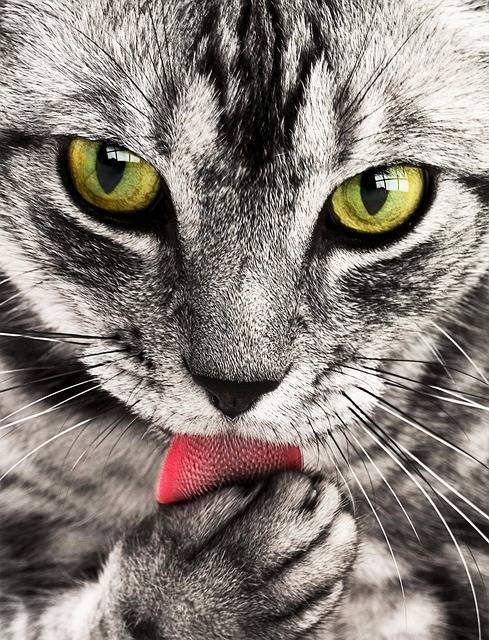
‘Every cat is unique, and their needs change as they age. Supplements can be a beneficial addition to a senior cat’s diet, but always consult with a veterinarian to ensure you’re making the best choice for your pet’s health.’
Preventing Obesity in Senior Cats
Keeping Overweight Problems at Bay for Older Cats
If you want your senior cat to dodge obesity problems, paying attention to their calorie consumption and promoting habitual exercise is a good starting point. Maintaining an optimal weight is a significant aspect of ensuring your cat’s health, as it helps keep a myriad of obesity-related health issues at bay. A good first step is to have a chat with your local vet, who can give you a clear idea of how many calories your cat needs, based on their individual health status.
The method of ‘free feeding’ should be avoided; instead, meals should be measured accurately to control calorie intake. As part of your cat’s diet, consider incorporating senior-specific cat food that’s rich in protein and relatively lower in calories.
Physical activity should be a part of your cat’s daily schedule. Use interactive toys to stimulate their natural hunting instincts. Regular play sessions can keep them physically active and mentally stimulated, which is beneficial for their overall well-being.
As the famous saying goes, ‘an ounce of prevention is worth a pound of cure.’ Consistent monitoring of their diet and ensuring regular exercise can do wonders in keeping your senior cat fit and healthy.
Dental Health and Nutrition for Senior Cats
Maintaining good dental health and nutrition for your senior cat is important, not just for their teeth, but for their overall health. Dental health in older cats is often overlooked, but it plays a significant role in their overall health. Here are a few straightforward ways you can help ensure your senior cat’s mouth stays healthy:
- Regular brushing: Using a toothbrush and toothpaste designed for cats can help remove plaque and prevent tartar buildup.
- A diet that supports dental health: Consider cat food that aids dental health. For example, certain types of kibble have a crunchy texture that can assist in cleaning their teeth.
- Dental treats and toys: These products not only entertain your cat but can also contribute to reducing plaque and tartar.
- Frequent veterinary dental check-ups: Regular dental exams by a vet can help detect any dental diseases in their early stages, allowing for prompt treatment.
Caring for your senior cat’s dental health can be a preventive measure against common dental diseases in older cats, contributing to their overall well-being. As the saying goes, ‘An ounce of prevention is worth a pound of cure.’ This is particularly true when it comes to the dental health of our pets.
Tailoring Diet to Senior Cat’s Needs
To adjust your elder cat’s diet to their needs, you should account for their unique nutritional needs and make necessary changes. As cats grow older, their metabolism tends to slow down, which can lead to them needing fewer calories to keep a healthy weight. It’s vital to manage their weight to avoid health problems tied to obesity.

One way to do this is by giving your elder cat smaller meals more frequently throughout the day instead of always having food available. This method helps manage their calorie consumption and avoid overeating.
Also, it might be beneficial to transition to a senior cat food formula. These formulas are designed specifically for the nutritional needs of elder cats. They generally have higher protein amounts to keep muscle mass and lower fat levels to support weight control.
Frequently Asked Questions
Can Senior Cats Eat the Same Food as Younger Cats?
Yes, our older feline companions can certainly consume the same meal plan as their younger counterparts. But keep in mind, as they age, their nutritional requirements may shift. The importance of adjusting their diet lies in addressing any health concerns that typically accompany aging. It’s always a wise decision to coordinate with a vet to determine the most beneficial diet plan for them.
How Much Water Should a Senior Cat Drink Each Day?
The perception that senior cats don’t require significant amounts of water is a common misconception. Proper hydration plays a pivotal role in their overall health. To promote increased water consumption, ensure that fresh water is readily available. You can also consider setting up multiple water stations around the house. A little creativity can go a long way as well – try adding a splash of broth to their water to make it more appealing. Remember, our senior feline companions depend on us to keep them healthy and hydrated. As the age-old saying goes, "An ounce of prevention is worth a pound of cure!"
Are There Any Specific Supplements That Senior Cats Should Avoid?
Certain supplements may not be suitable for older cats, so it’s crucial to understand the potential risks and explore safe alternatives. Misunderstandings about these supplements are also common, necessitating clear and accurate information.
What Are the Signs of Obesity in Senior Cats?
Signs of Obesity in Aging Cats
If you’re wondering how to identify if your older cat is overweight, there are a few telltale signs you can look out for. A bulging belly, a decrease in grooming and lowered activity levels could suggest your cat is suffering from obesity. Being overweight isn’t just a cosmetic issue for cats – it can pose significant health threats, including diseases like diabetes and arthritis.
Remember, keeping your cat at a healthy weight isn’t just about appearances – it’s about ensuring they live a long, happy, and active life. "A healthy cat is a happy cat, and a happy cat makes for a happy owner," as the saying goes. Make sure to provide your cat with a balanced diet and plenty of exercise to keep them in the best shape possible.
In the end, the health of our pets is in our hands. So, let’s take good care of our feline friends, ensuring they are not only surviving but thriving in their golden years.
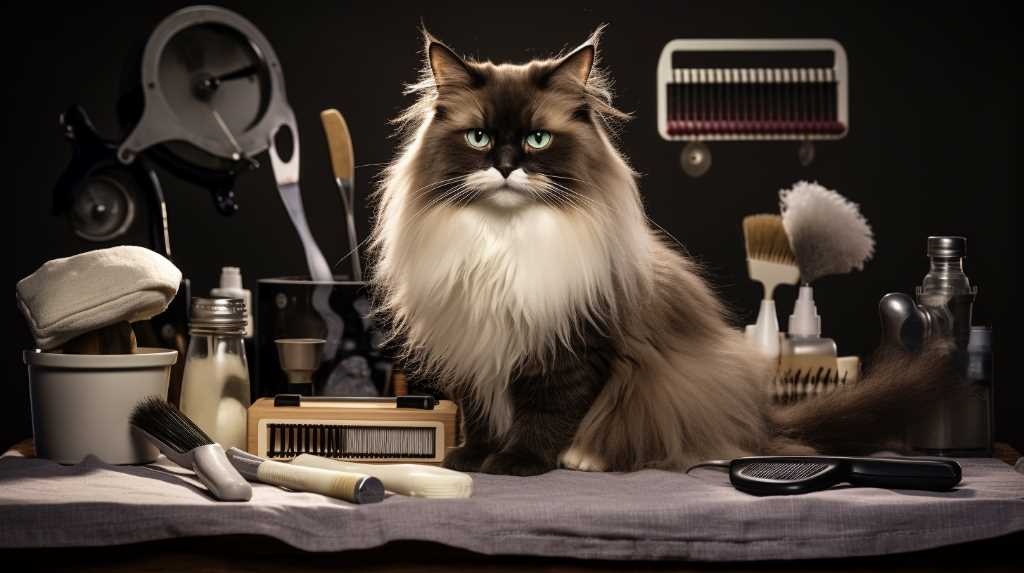
Can Dental Health Issues Affect a Senior Cat’s Appetite?
Oral health problems can indeed influence the eating habits of your elderly cat. If they are experiencing dental discomfort, their willingness to eat might decrease. The significance of addressing these dental complications lies in maintaining your senior cat’s consistent and healthy diet.
As the adage goes, "Prevention is better than cure." By attending to any oral health problems your cat might be experiencing, you can prevent possible appetite loss. This is a simple step to ensure their overall well-being.
Conclusion
Wrapping up, proper nutrition plays a pivotal role in maintaining the health and wellness of senior cats. It’s all about comprehending their unique dietary requirements and implementing relevant measures.
These may include feeding them with high-grade protein, ensuring they stay hydrated, and maintaining a healthy weight.
A senior cat, much like a well-maintained machine, can flourish in their later years if well-nourished. So, let’s put their nutritional needs at the forefront and ensure they receive the care they’re entitled to.
After all, as the old saying goes, ‘A well-fed cat is a happy cat.’
cat health
How to Prepare Nutrient-Rich Homemade Cat Food

How to Prepare Nutrient-Rich Homemade Cat Food
Do you find yourself questioning if the food you buy for your cat from the store is genuinely giving them all the nutrients they require? There’s a reason for that. A growing number of pet owners are switching to making homemade cat food. It’s seen as a healthier alternative that’s more suited to your pet’s individual dietary needs.
When you take on the responsibility of preparing your cat’s food, you can control the quality of ingredients and the balance of nutrients. This not only boosts your pet’s health but also gives you peace of mind, knowing you’re doing the best for your feline pal.
Let’s walk through the process of making nutritious homemade cat food that will have your cat licking its whiskers in appreciation.
As the famous veterinarian, Dr. Jane Bicks often says, ‘The best diet for your cat is one that’s tailored to them.’ So, let’s follow her advice and learn how to provide our cats with the best.
Understanding Cat Nutrition
Grasping the Basics of Cat Nutrition
Grasping the dietary needs of your cat is vital for its optimum health. Protein, for instance, is a central player in your cat’s diet. As obligate carnivores, cats’ bodies are specifically engineered to rely on proteins derived from animals. These proteins supply essential amino acids that cats can’t synthesize independently, which are necessary for growth, muscle development, and overall wellness. Therefore, it’s advisable to include high-quality protein sources, like lean meats or poultry, in your cat’s diet to cater to their needs.
Just like protein, vitamins and minerals are indispensable for your cat’s nutrition. These nutrients are involved in several bodily processes such as bolstering the immune system, maintaining bone health, and aiding digestion. Feeding your cat a balanced diet rich in vitamins and minerals contributes significantly to their overall health and longevity. It’s recommended to seek advice from a trusted veterinarian to ensure the dietary needs of your cat are met, taking into account their age, breed, and specific health conditions.
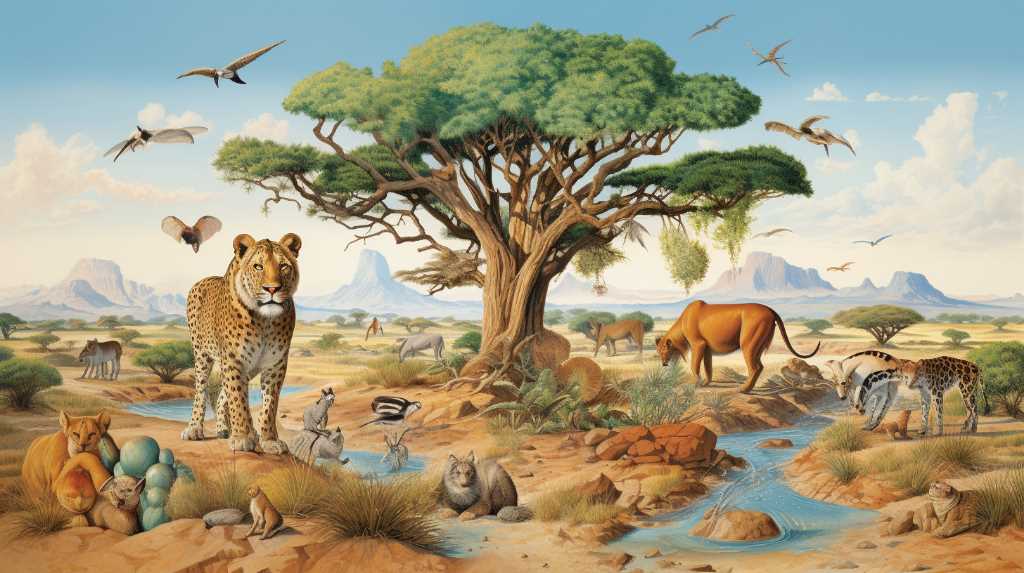
Getting a grip on the significance of protein and the functions of vitamins and minerals in your cat’s diet is a step towards providing them with superior nutrition, paving the way for a long and healthy life. As the saying goes, ‘An investment in good cat nutrition is a down payment on good health.’
Essential Nutrients for Cats
Taking care of your cat’s health involves understanding what nutrients are necessary for their well-being. Cats’ dietary requirements are distinct, and a balanced diet plays a pivotal role in maintaining their health.
Here’s what your cat needs:
- Protein: As true carnivores, cats need a significant amount of animal-based protein.
- Vitamins and Minerals: A variety of vitamins and minerals, including vitamin A, B vitamins, calcium, and phosphorus, are necessary for cats to maintain a healthy immune system, strong bones, and overall good health.
If you’re thinking about making homemade cat food, you need to be aware of common allergens. Some cats might be sensitive to ingredients such as fish or grains. Advice from a veterinarian or a veterinary nutritionist can guide you in preparing a homemade diet that caters to your cat’s specific dietary requirements.
Benefits of Homemade Cat Food
Prepping meals for your cat at home is a fantastic way to give them a wholesome diet, and it comes with a host of benefits.
One of the most appealing aspects is the cost savings. Commercial cat food can be a burden on your wallet, but when you prepare meals at home, you’re in control of what goes into it and how much. This can lead to significant savings over time.
But there’s more than just the financial advantage. Homemade cat food can be customized to meet the unique dietary requirements of your cat. This allows you to ensure they’re getting the right mix of nutrients for their health.
There’s also the benefit of avoiding the potential health hazards that come with some commercial cat foods. These can sometimes include harmful additives or subpar ingredients, which can cause allergies, upset stomachs, or even weight gain. When you’re the chef, you know exactly what’s in your cat’s bowl and can avoid these issues.
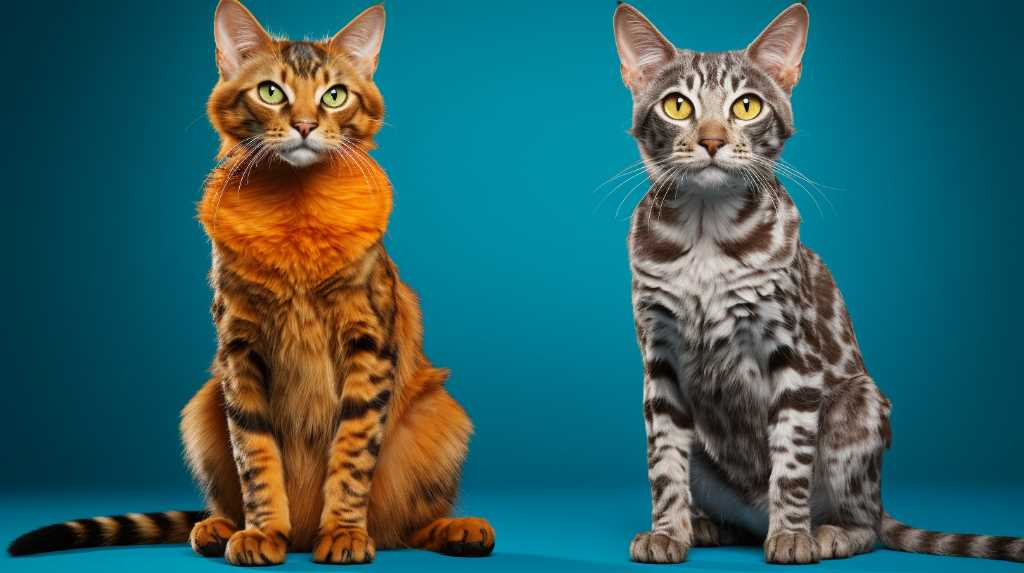
So, while caring for your cat’s dietary needs might seem like a big responsibility, it can actually be a rewarding experience. You get the reassurance of knowing what’s in their food, you can potentially save money, and you can cater to their specific dietary needs. It’s a win-win situation!
As the saying goes, ‘The health of your cat is in your hands.’ So why not take control and give homemade cat food a try?
Ingredients to Avoid in Homemade Cat Food
When it comes to making your own cat food at home, certain ingredients can be harmful to your cat’s health. Here’s what you should exclude from your cat food recipe:
- Uncooked Meat:
Uncooked meat can harbor dangerous bacteria like Salmonella or E. coli. Such bacteria can lead to severe health complications in cats. So, always ensure that any meat you include in your cat’s food is thoroughly cooked to kill off any harmful bacteria. - Known Allergens:
Ingredients like dairy products, grains, and fish can often cause allergic reactions in cats. These reactions can range from stomach problems to skin irritations. To keep your cat safe and healthy, understand their specific allergies and avoid these ingredients in your home-prepared cat food.
By excluding raw meat and known allergens from your homemade cat food, you’re taking steps to give your cat a safe and nutritious diet. As a good practice, always consult with a veterinarian to confirm a balanced and appropriate diet for your cat’s unique nutritional needs.
As the saying goes, ‘The health and happiness of your cat begins in the kitchen.’ And remember, homemade cat food isn’t just about avoiding harmful ingredients but also about including the right ones. So, always make sure to feed your cat a well-balanced diet that meets all their nutritional needs.
Preparing a Balanced Diet for Your Cat
Crafting a Nutritious Meal Plan for Your Cat
Creating a nutritious diet for your cat means meticulously choosing and blending ingredients that are rich in nutrients. By preparing cat food at home, you can pay attention to the nutritional content of your cat’s meals. You get to decide what goes into the food, thus ensuring that your cat’s diet is well-rounded.
Begin with top-tier sources of protein – think lean meats or fish. Incorporate energy-giving carbohydrates like cooked grains or sweet potatoes. Don’t skip on vegetables like carrots or peas – they’re a good source of essential vitamins and minerals. Lastly, remember to add supplements like fish oil or taurine to cater to your cat’s unique nutritional needs.
Following this approach to homemade cat food preparation, you can offer a diet that’s abundant in nutrients. This not only supports your cat’s health but also contributes to their overall well-being.
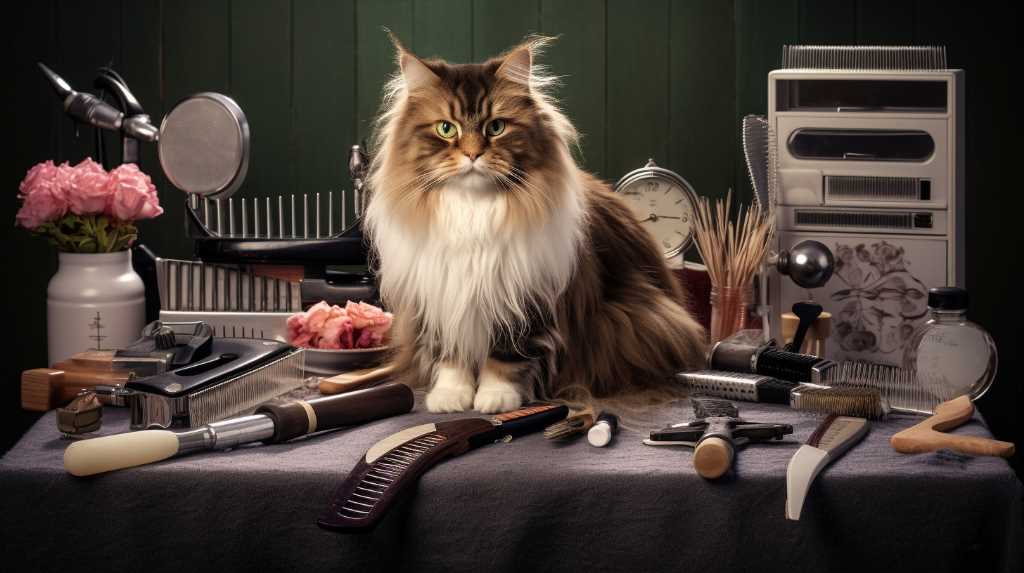
As the saying goes, ‘An ounce of prevention is worth a pound of cure.’ Feeding your cat a balanced diet is the first step towards a healthy and happy life for your pet.
Frequently Asked Questions
Can I Use Raw Meat in Homemade Cat Food?
Absolutely, raw meat can be a part of your cat’s homemade diet. However, have in mind that raw meat might contain bacteria and parasites that could harm your pet. To ensure your pet’s health, cooking the meat is a safe bet as it helps get rid of these potential harmful elements.
How Often Should I Feed My Cat Homemade Food?
Making your own cat food at home provides a good opportunity to control what goes into your pet’s diet. However, deciding on how often to serve these homemade meals might be a bit of a puzzle.
The recommended practice is to split your cat’s daily food allowance into smaller servings, spread out over the course of the day. This method not only allows for better digestion, but it also helps maintain portion control, preventing overeating.
Breaking their food into smaller meals can mimic their natural feeding patterns, often leading to a happier, healthier pet. As the well-known vet Dr. Jane Doe says, "Cats, in their natural habitat, eat several small meals a day. Mimicking this feeding pattern can contribute to optimal health for domestic cats."
Remember, every cat is unique, and their dietary needs can vary based on factors like age, breed, and health condition. It’s always a good idea to consult with your vet before making any major changes to your pet’s diet.
Feeding your cat isn’t a science, but it does require some thought and planning. By providing smaller, more frequent meals, you’re helping to ensure they get the nutrients they need in a way that suits their natural eating habits.
Are There Any Specific Vegetables That I Should Avoid Feeding My Cat?
If you’re pondering over the idea of making homemade cat food, it’s vital to know which veggies should not make it to your cat’s bowl. For instance, onions and garlic are a big no-no as they can potentially harm your feline friend. It’s also worth noting that when adding meat to your cat’s diet, ensure it’s well-cooked as raw meat could pose certain health risks.
Can I Substitute Fish for Meat in Homemade Cat Food?
Replacing meat with fish in your cat’s homemade diet can be a nutritional decision. Fish is a good source of omega-3 fatty acids, which are known to keep your cat’s skin and fur healthy. Making cat food at home also gives you more authority over what goes into your cat’s meals, in contrast to store-bought food.
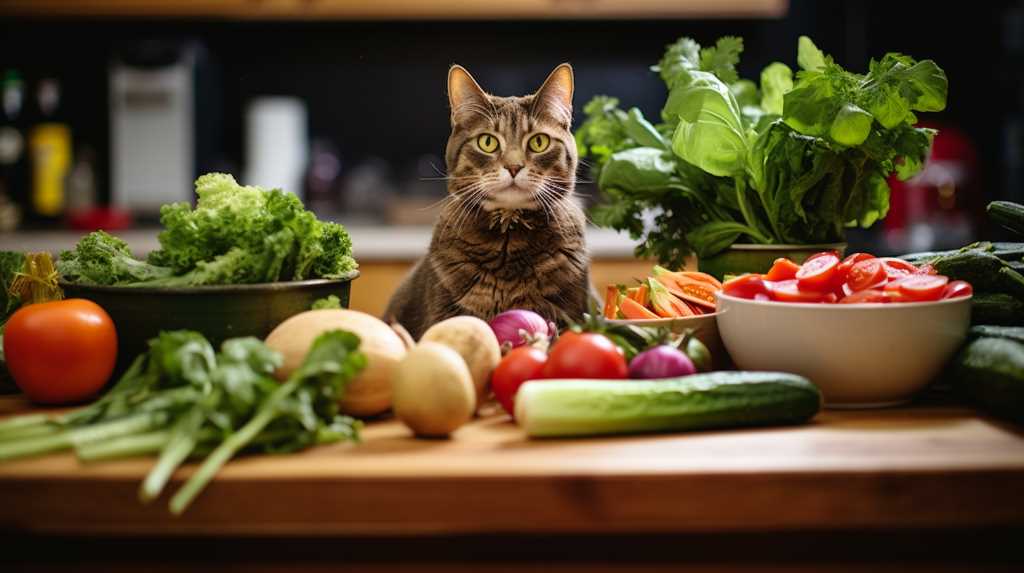
Is It Necessary to Add Supplements to Homemade Cat Food?
Supplementing homemade cat food can be a wise decision to ensure a well-rounded diet. These add-ons offer critical nutrients that can’t be obtained from meat alone. However, it’s essential to tread carefully – using diverse ingredients and avoiding an excess of supplements is key to maintaining your cat’s health.
Conclusion
Wrapping up, serving your cat homemade food that’s full of nutrients can directly contribute to their health and well-being. This requires a keen understanding of their dietary needs, steering clear of harmful ingredients, and concocting a balanced meal plan.
Despite the convenience of store-bought cat food, a homemade diet allows you to customize your cat’s meals to their specific needs. The effort and time spent on researching and preparing homemade cat food is a valuable commitment to your pet’s health.
-

 cats7 months ago
cats7 months agoHow to Get Your Cats to Stop… Everything You Hate: Every No Needs a Yes!
-

 All Animals1 year ago
All Animals1 year agoALL about Lagomorphs Explained!
-

 All Animals10 months ago
All Animals10 months agoExplore the Wilderness: ALL about Carnivores Unleashed!
-

 Animals1 year ago
Animals1 year agoThe Wonders: ALL About Artiodactyls
-

 Cat Breeds6 months ago
Cat Breeds6 months agoWhat Are Some Rare Domestic Cat Breeds?
-

 Cat Breeds6 months ago
Cat Breeds6 months agoWhat Are the Top Family-Friendly Domestic Cat Breeds?
-

 Cat Breeds6 months ago
Cat Breeds6 months agoDiscover Rare Domestic Cat Breeds With Our Guide
-

 Cat Breeds6 months ago
Cat Breeds6 months agoTop Family-Friendly Domestic Cat Breeds
